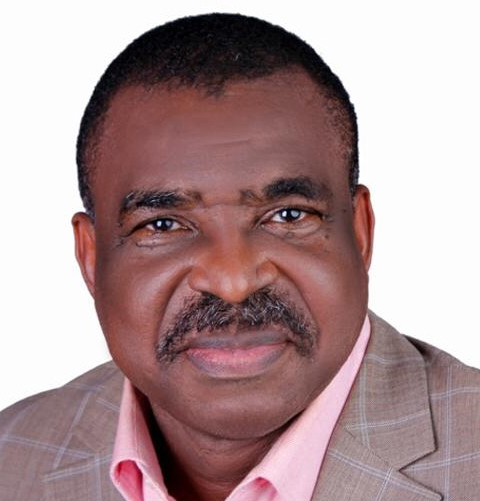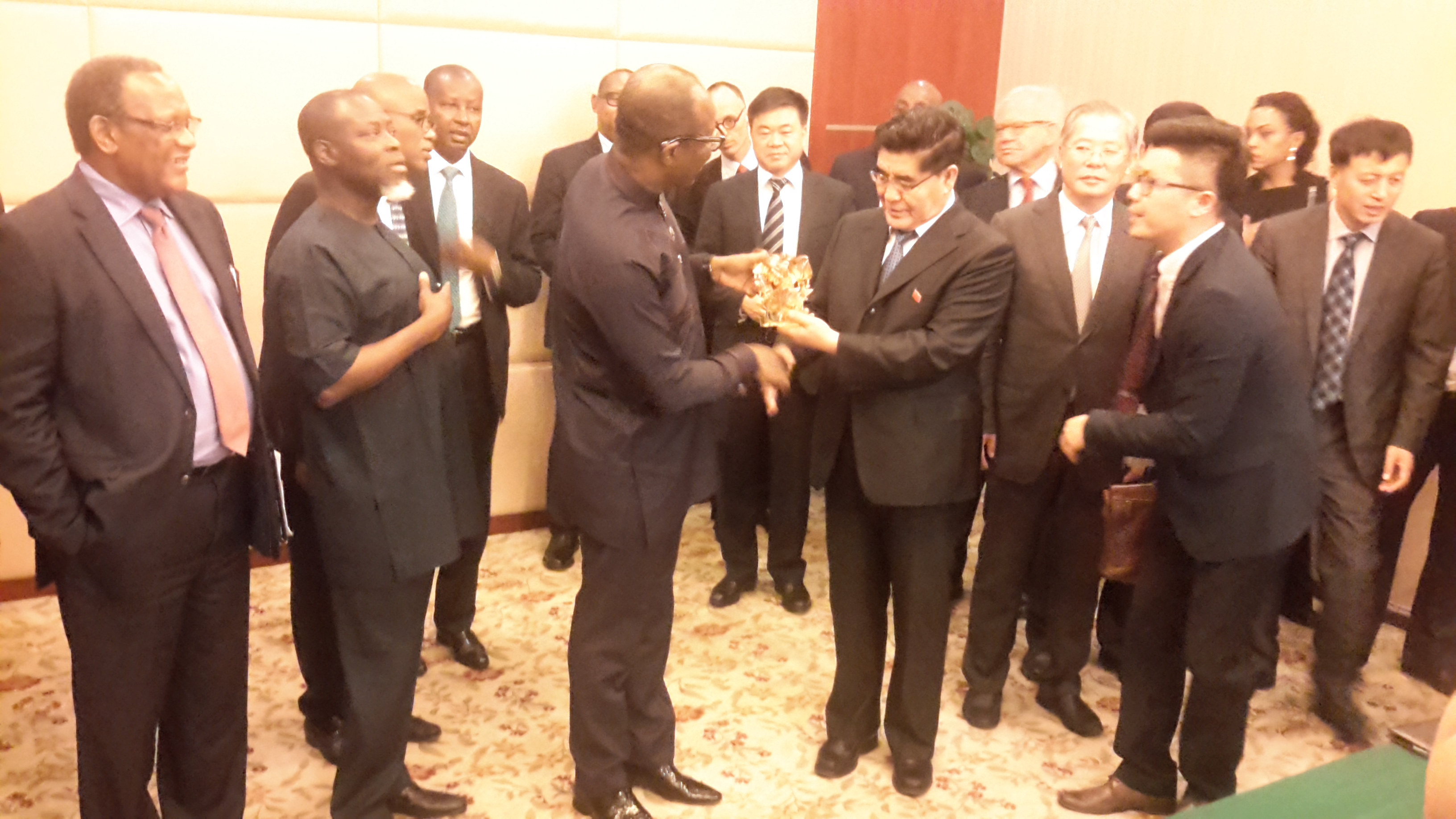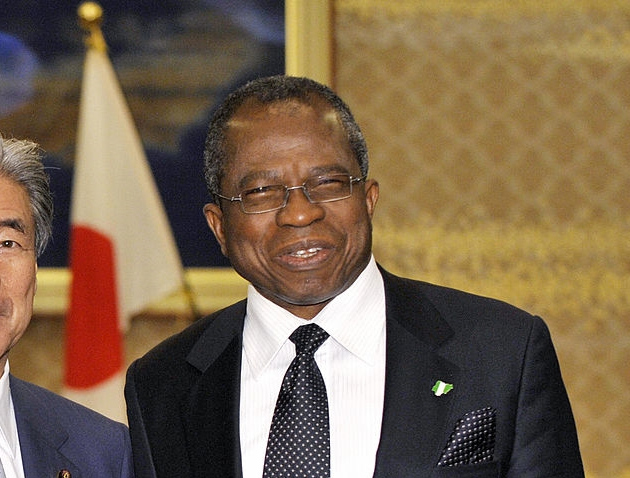Upon his return from a state visit to China a few months ago, song and dance were made of a business scoop, that goes by the name Naira/Yuan swap which the high powered Nigerian entourage, struck with their Chinese counterparts.
The deal was meant to assist in easing the pressure on Nigeria’s foreign exchange, fx reserve which has been declining rapidly from a peak of over fifty billion dollars, $50b during former president Olusegun Obasanjo’s era a few years ago,when crude oil was selling at over $100 per barrel , to the present low of about $27b as oil price hovers around $50 per barrel.
With the flexible exchange regime which proponents are optimistic would open the door for a flood of inward bound investments in Nigeria, now in operation, it would be wise to reinforce and consolidate the rebounding economy by triggering the yuan/naira swap which also has the ability to enhance the benefits accruable from the restoration of both Western and Asian investors confidence in Nigerian economy.
For the sake of clarity, Yuan/Naira currency swap is not a myth as some pundits have made it seem.
Advertisement
If it were a rouse, the People’s Bank of China would not have Yuan swap arrangements with 28 countries worldwide, including financially sound nations like the Kingdom of Great Britain(maybe not so great anymore in the wake of Brexit ) and Australia.
Basically, the Naira/Yuan currency swap would allow Nigeria borrow Yuan and lend naira for purchases from China by simply short circuiting the process of converting the Nigerian currency to dollar before further conversion of the dollar to Yuan.
In that regard, the currency swap would help douse the tension on the naira because apart from the dollar trading block comprising of the U.S and Western Europe, there is the second major trading blocks in Asia, represented by China.
Advertisement
While the large Western countries promoted corporate firms engaged in manufacturing rely on the dollar and are thus pile pressure on the naira , the merchants dealing in basic goods imported from China are also demanding dollars, but with the swap in operation, Asian products focused traders would prefer the Yuan resulting in reduction in demand for dollars.
In a nutshell, my proposition is that a combination of the current flexible foreign exchange regime and Naira/Yuan swap could ease the pressure on the naira from both the Western and Asian trading blocks if activated in tandem.
This could accelerate the strengthening of the naira so that it could exchange for not more than N250-$1, as envisaged and which is contrary to the current exchange rate of N280+ to the $1.
Curiously, the successful currency swap with over a quarter (28) of the countries in the world has made the Yuan the alternative to the dollar for global trade and finance.
Advertisement
According to Bloomberg report, while the lMF tends to demand reforms aimed at stabilizing a country’s economy in exchange for loans, analysts speculate that China’s terms are more focused on securing its interests in resource rich countries like Nigeria, which in my view is pragmatic.
With the high number of swap arrangements so far secured, experts believe China is cutting into the lMF sphere of influence by becoming the new go-to-financier for govts in distress.
A cursory look at a list of recent Yuan swap beneficiaries would confirm the assertion that without China, neither lMF nor the World bank would have lent money to any or all of the following countries: (A) Russia -$24b (B) Argentina-($11b) (C) Venezuela-($4b).
When Russian swap was announced in October 2014, Russian currency,the rubble gained 10% in value. Similarly,when Argentina entered into currency swap with China, and received the first of $2.3b her foreign exchange reserve rose to a 13 month high from being kept out of international capital markets since defaulting on foreign obligations in 2001.
Venezuela whose economy has been in tatters even before oil prices plummeted also saw her currency gaining some momentum when a Yuan swap arrangement that involved $4b gave the economy a badly needed lift, although the boost was temporary.
Advertisement
Given the positive antecedents of Chinese Yuan swap with other currencies, it is very likely that operationalizing the Naira/Yuan swap agreement with the Chinese would give the naira a bounce, so the earlier we seize the opportunity, the better.
As stated initially , most of the countries that China engaged in currency swap with are resource rich countries which are in the Chinese strategic interests.
Advertisement
In other jurisdictions like the UK, their national income is not mainly derived from natural resources like Brent grade crude oil sourced from the north of England which they also have in abundance like Nigeria.
Rather, regular taxes like personal income tax and corporate taxes from individuals and corporate bodies constitute the bulk of funds used in providing infrastructure and rendering other social services such as affordable health care , education and housing services etc.
Advertisement
Thats why the UK has a reputation for being the master of the policy of tax and spend.
As the UK developed economically and London became the foremost financial capital of the world, second only to New York , super profit was being reaped by banks and super profit tax got introduced into the financial services sector to enable the rest of the larger society enjoy the gains made in the financial services sector.
In 1981, under the watch of Margaret Thatcher as prime minister of the U.K and George Howe as the chancellor of the exchequer, tax on excessive profits by banks was introduced and over £400m was harvested from the exercise.
As business secretary of the U.K., during prime minister, Gordon Brown’s reign,Peter Mandelson, pioneered the concept one-off tax on bank’s bonuses, which sparked a furore in the banking sector but it generated revenue for govt to sustain provision of social services.
The super tax was not restricted to bankers only as there was a time utilities like British airways, British Tobacco, British telecom and Powergen were taxed about £5b.
Advertisement
In the same manner, during the period of high oil prices , bonus taxes on North Sea oil and gas amounting to about £2.4b was also raked into the British treasury.
The opposite has been the case in Nigeria where tax leakages have been the bane of the economy as tax avoidance and tax evasion are the norm rather than exception.
During the oil boom, politically connected entrepreneurs became nouveau rich after being granted juicy oil contracts or mining acreages through Diezani Allison-Madueke led petroleum ministry, as mandated by the local content policy in the oil/gas sector, which was good.
But in the absence of super profit tax-l don’t mean withholding tax-the new oligarchs went on shopping binge of fleets of private jets, PJs, yachts and other luxurious items with their excessive profits, as opposed to ploughing the wealth back into society as social investments etc.
Back in the days, PJ owners were so visible and had such an overarching presence that ex president GoodLuck Jonathan bragged that the expanded number of private jet owners in Nigeria during his tenure was a positive testimony to the economic successes of his administration.
Indeed, Jonathan was in some uncanny way correct that the private jets were signs of the time, because the aircrafts that used to dot Nigerian skies like a swarm of swallow birds,have now migrated back to their original destinations like seasonal birds,which is a sign of the intolerance of display of excessive wealth by the govt in power.
The poor tax collection situation in Nigeria speaks to the economic development principle which states that the level of tax compliance in a society is proportional to how deep or shallow democratic tenets have been imbibed in the clime.
When the International Monetary Fund,the lMF boss Christine Lagarde visited Nigeria,she told her skeptical audience that she was not in the country to offer her loan but to encourage her her to adopt more flexible foreign exchange regime and assist her in strengthening her tax base.
Perhaps to Madame Lagarde’s IMF delight, a flexible foreign exchange regime has just been introduced,making the next action to be taken towards fixing Nigerian economy, a review of the tax system.
The type of tax reforms that the lMF and World bank nudged Republic of Georgia to embark on may be instructive for Nigeria.
This is because although Georgia has a population of about five million which is more or less than the population of delta state in Nigeria, the Eastern European country’s economy, like Nigeria’s was about 50% controlled by funds from the informal / parallel market.
Incidentally, Georgia commenced her economic and tax reforms with anti corruption war like Nigeria.
Thereafter the tax reforms were carried out in three phases: 2004-7; 2007-9 and 2010-11.
At the end of phase 1 in 2007, tax revenue moved up from about 12% to over 21%.
Overall,about 15 types of taxes were eliminated thus making the economy more tax friendly and enhancing her ability to generate more tax revenue.
More details about Republic of Georgia’s tax reforms and gains can be found at www.mof.ge.
The positive outcome of tax reforms in Georgia should be of interest to my good friend, Tunde Fowler, the new chairman of Federal Inland Revenue Service , FIRS who may wish to check out the website.
Since assuming office, the FIRS boss has been rejigging the tax system at the federal level with a view to achieving as much success as his accomplishments in lagos state.
From an outsider’s point of view, it would appear that the focus of FIRS has been on increasing the rate of Value Added Tax,VAT and expanding the tax base to capture the middle class and the masses who are not in the tax net yet.
According to recent studies conducted by some international audit firms,including PriceWaterhouseCooper’s,PWC, compared to her African peers, Nigeria charges the least VAT at 5%, but given that there are still a lot taxable of services that are yet to be pulled into the tax net,one can understand why govt may not be in a hurry to move VAT up from 5%.
Similarly, rather than retaining the ban on the 41 items earlier restricted by the CBN,prior to the introduction of the new flexible exchange regime, authorities should lift the ban on the items ranging from private jets to tooth picks and allow free market forces to determine their status.
To that end, FIRS should be empowered by NASS to apply high tax in prohibiting the imports of the items that are not considered priority.
In the twilight of the Goodluck Jonathan’s regime, luxury tax was introduced to curb excessive and epicurean consumption, such as Pjs and Yachts, but it is unclear if it yielded desired dividends.
Owing to astute and dexterous application of tax laws,the U.K with a population of almost 65m compared to Nigeria’s 170m, although with higher GDP of roughly $3b which is nearly six times more than Nigeria’s $530m, made about £400m during Margaret Thatcher’s reign from super profit tax and $5n from tax on utility companies.
Nigeria can also earn substantial tax incomes in like manner from banks and utility firms that take their customers for granted or make excessive profits when the rest of the players in the economy are groaning in pains.
Nigerian Communications Commission, NCC, for instance has led the charge in the preservation of the sanctity of regulations and protection of consumers from telecoms firms exploitation by slamming MTN GSM telecom firm, with a fine of N1.4 trillion( now significantly reduced) for flouting SIM card registration.
Imposing punitive financial sanctions is not Perculiar to Nigeria as the US and UK financial regulatory agencies have been known to have stunned American and European banks with very harsh fines when a total of $4.2 was recently paid by six banks as penalties for nefarious activities.
The sanctioned banks include HSBC, Royal Bank of Scotland, RBS, UBS bank, Citigroup, Jp Morgan and PNB Bank Pariba.
While it has been alleged in some quarters that excessive fine on banks may result in impairment, especially at a period that they may be going through stress test,United States secretary of Justice, Eric Holder in Dept of Justice, DoJ website, shares no such sentiments “There is no such thing as too big to fail ” he declared. “To be clear: no individual or company, no matter how large or profitable, is above the law”.
Little wonder a total of $199.5n has been paid as penalties by banks to the USA authorities with $15.5 of it being from foreign banks.
Likewise,Giant energy firms like Siemens and Halliburton have also been known to have been slammed with hefty fines in millions of dollars for violating operating rules and environmental rights in Western countries, while same companies were not penalized for similar offenses in Nigeria.
So antecedents on how financial authorities can earn revenue from super profit making banks and other businesses that flout laid down rules, abound.
Aside from the initiative being legitimate means of raising funds for govt,it also enables the authorities protect citizens from exploitative practices of large financial and oil/gas institutions, some of which many Nigerians have fallen victim.
Considering that BP, the European oil behemoth is yet to recover from the financial cost of the damages caused to the environment when her oil rig ruptured in the USA, authorities in Nigeria have been too lenient by not sanctioning similar oil polluters in Nigeria.
In affirmation of the prevailing harsh operating environment, records indicate that bank profits in Nigeria dropped by N11.1b in the last financial year, nonetheless , a dividend of N508b was shared by the stockholders of 9 of the roughly 26 banks now operating in Nigeria.
These are; Access, Ecobank, Fidelity,Gtbank Wema,UBA Union, Sterling and Zenith.
The average ratio of profits shared as dividends by shareholders is about 60% while the rest of 40% was probably retained as plough back to boost shareholders funds.
So despite hostile operating environment as most of the banks often state in their annual reports,the bottom line is that despite the economic down turn, the so called economic live wire of the economy performed very well while the businesses which they are supposed to support,either collapsed or pulled out of Nigeria to escape insolvency.
In conclusion, apart from the bane of poor infrastructure like unstable supply of electricity and poor roads network,one of the reasons companies relocate from Nigeria is believed to be excessive dividends exposure.
This means tax authorities have to look closely at the cause and effect of excessive dividends exposure in Nigeria in order to find a way to fix it.
This would enable companies that took flight from Nigeria, due to the harsh fiscal environment,return to their factories and create employment as desired by president Buhari who reminded captains of industry during a recent breakfast meeting that it is their duty to create employment.
To facilitate the speedy actualization of the recent request, mr president should direct the CBN to, without further hesitation, implement the Naira/Yuan swap.
Onyibe, a development strategist, futurologist and former Commissoner in delta state govt is an alumnus of Fletcher school of Law and Diplomacy, Tufts University, Medford Massachusetts, USA.
Views expressed by contributors are strictly personal and not of TheCable.






